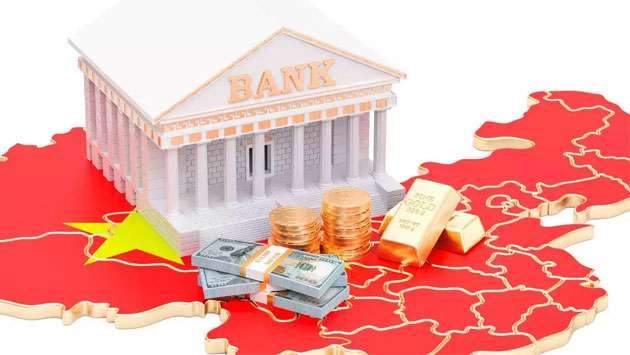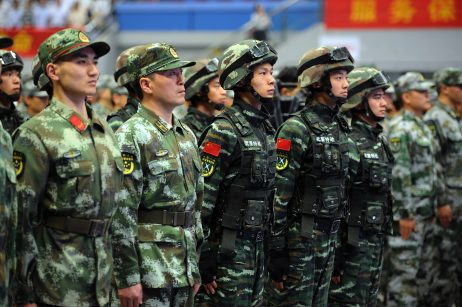
China’s banking sector is facing a crisis of credibility as a series of high-profile financial scandals shake its foundations. The most recent case involves the conviction of Liu Liange, former Chairman of the Bank of China, who was sentenced to death with a two-year reprieve for corruption and the illegal issuance of loans. The Jinan City court found that Liu had accepted bribes totaling over 16.8 million US dollars.
These events highlight a disturbing trend of systemic corruption involving senior officials, revealing deep vulnerabilities within the financial system. Once a symbol of the nation's financial strength, China's banking sector is now losing respect in the eyes of the public.
In recent years, several top executives have been implicated in corruption, shedding light on the scale of the misconduct. In October 2023, Fan Yife, former Vice-Governor of the People’s Bank of China, was sentenced to death with a two-year reprieve for accepting bribes worth 53.3 million US dollars. His case highlights the abuse of power at the highest levels of China’s financial institutions.
Similarly, Liu Liange’s conviction was part of a wider trend. His predecessor, Tian Huiyu, former President of China Merchants Bank, was sentenced in February for bribery and insider trading after amassing over 68.7 million US dollars in illicit gains. Tian was a close ally of China’s former economic tsar.
Perhaps the most striking case involved Sun Deshun, former President of China CITIC Bank, who was convicted in November of accepting bribes worth 1.37 billion US dollars. Sun used his leadership position for over 16 years to secure illegal gains, underscoring the deep entrenchment of corruption within the sector.
In 2020, Cai Guohua, former Chairman of Hengfeng Bank, was convicted of embezzlement, bribery, and abuse of power. His actions destabilized one of China’s major joint-stock banks, prompting regulatory intervention. These cases represent a broader trend of systemic corruption, where top executives exploit insider connections to siphon billions from their institutions.
According to *The Economist*, financial scandals in China are frequent, with mid-level managers, labeled “moths,” slowly draining banks’ resources, while high-level executives—dubbed “internal ghosts”—pose even greater risks. The media has even referred to smaller banks as "anti-corruption disaster zones" due to the prevalence of fraud networks, which have been described as “nest” and “skewer” cases.
These scandals have eroded public trust in China’s banking system. Millions of depositors depend on banks to safeguard their savings, but the corruption cases have revealed an industry riddled with greed and mismanagement. Beyond public confidence, corruption also undermines the financial sector's ability to allocate resources effectively. The misappropriation of funds and illegal loans distorts economic priorities, exacerbating risks, and deepening crises such as China’s ongoing property and local government debt challenges.
- Systemic corruption shakes China’s banking sector
Keep Reading
The Xi Jinping administration has faced significant embarrassment due to these scandals. In response, it has intensified efforts to crack down on financial misconduct. In November 2023, the government created the Central Financial Commission (CFC), led by Premier Li Qiang, to strengthen supervision over the 61 trillion US dollar financial sector. The CFC's goal is to prevent systemic risks and reinforce China’s ambition of becoming a “major financial power.”
Additionally, the National Financial Regulatory Administration (NFRA) was established to enforce stricter regulations. In 2024, the NFRA fined China Construction Bank, Bank of China, and China CITIC Bank a total of 1.37 million US dollars for various violations, highlighting the government’s focus on addressing weaknesses in internal controls and information system management.
However, critics argue that the government's actions are insufficient. They contend that punitive measures alone are inadequate in tackling the root causes of corruption. Structural issues, such as a lack of transparency and accountability, remain unaddressed. Simply arresting individual executives will not prevent future misconduct if systemic weaknesses persist.
A critical report in *The Economist* discussed the ongoing challenges in China’s banking sector, noting how corruption investigations frequently uncover extensive fraud networks. State media has warned that the sector is infested with “moths” and “internal ghosts,” whose misconduct threatens stability. Smaller banks, in particular, have been labeled as corruption hotspots.
While the Xi administration’s reforms, such as the establishment of the CFC and NFRA, are a step in the right direction, restoring public trust in China’s banking sector will require more than just punitive measures. Deeper structural reforms, greater transparency, and stronger internal controls are essential to preventing future scandals and ensuring the sector's long-term stability.











